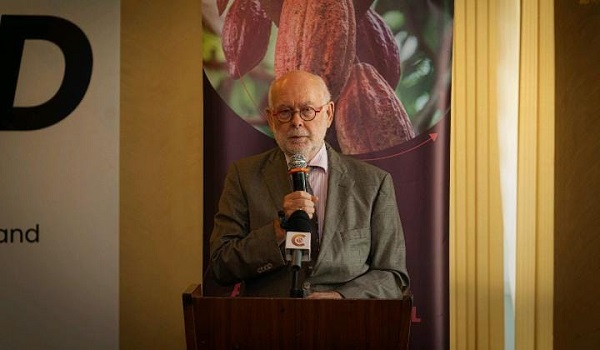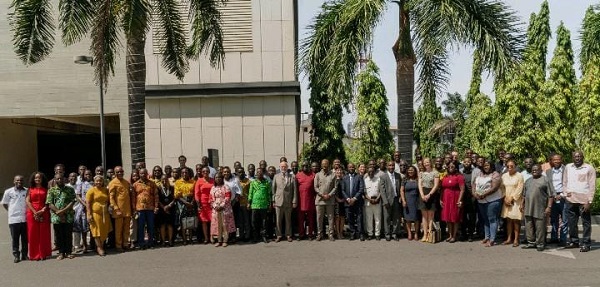
Ghana risks losing cocoa dominance without major investment – Netherlands Ambassador
Ghana's cocoa sector requires significant investment to meet international sustainability standards while remaining competitive against emerging producers, Netherlands Ambassador to Ghana, Jeroen Verheul, has said.
He said the country was losing global competitiveness in cocoa production due to structural weaknesses that have not been adequately addressed over the years.
He cautioned that if current trends of declining productivity persist, Ghana could fall behind emerging cocoa producers such as Ecuador and Brazil.
"If production is going down as it is going down right now, then that means there is less export of cocoa and less foreign exchange earned by farmers and less foreign exchange earned by the economy.”
"So it's a threat to the economy if production is going down. There is an imperative for the Ghana economy to maintain the cocoa sector, to invest in it, to make it more productive and more competitive,” he stated.

CSDDD
Mr Verheul made these remarks at a High-Level Public-Private Dialogue in Accra on Ghana's readiness for implementing the European Union's Corporate Sustainability Due Diligence Directive (CSDDD) in the cocoa sector.
The EU directive, which comes into effect in phases starting this year, requires European companies to ensure their supply chains do not contribute to environmental degradation or human rights violations.
For Ghana's cocoa sector, this means farmers and exporters must meet strict standards on deforestation, child labour and fair wages to continue selling to Europe, which remains Ghana's largest cocoa market.
The event, organised by the International Trade Centre (ITC) through the Netherlands Trust Fund (NTF V), brought together stakeholders including policymakers, value chain actors, industry players, civil society and development partners to enhance awareness and preparedness for the EU CSDDD implementation.

Beyond EU Compliance
The Ambassador explained that while compliance with EU sustainability directives was necessary to ensure continued market access and maintain competitiveness, that alone would not address all the sector's challenges or safeguard crucial foreign exchange earnings.
"The question I would like to reflect on is whether the CSDDD will help reset Ghana's cocoa sector. My answer is yes, it will help, but it will not be enough because no single regulation can address all the challenges," Mr Verheul stated.
He stressed that additional measures were needed, noting that "a living income will not be sustainable if farms are not profitable".
This, he said, highlights the need for farmers to earn enough not only for current needs but also for future investments in production.
Mr Verheul affirmed the Netherlands' commitment to supporting Ghana's cocoa sector transformation and pledged continued collaboration with stakeholders on emerging issues.
The National Coordinator for ITC, Larry Attipoe, said the initiative was designed to ensure that farmers not only meet export standards but also produce for local markets.
"Our current focus is on cocoa and coffee, where we are actively engaging and training farmers to meet compliance and avoid disqualification from international markets," he said.